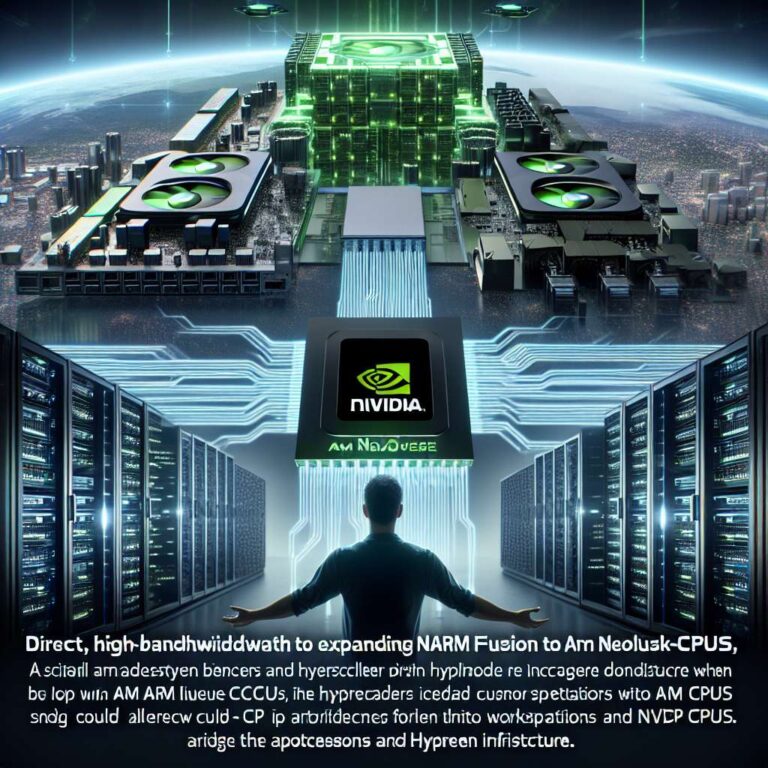Nvidia has announced that Arm-based Neoverse CPUs can integrate with its NVLink Fusion technology, enabling direct and efficient communication between Arm licensee CPUs and Nvidia GPUs. The move opens NVLink beyond Nvidia’s own proprietary CPUs and the Intel and AMD server configurations that previously dominated NVLink deployments. According to the announcement at the Supercomputing ’25 conference, Arm confirmed custom Neoverse designs will include a protocol to enable seamless data transfer with Nvidia accelerators, helping to eliminate PCIe bottlenecks in Artificial Intelligence-focused server deployments.
Arm licensees can now build CPU system-on-chips that include NVLink IP natively, allowing customer systems to pair multiple GPUs with a single Arm CPU for Artificial Intelligence workloads. Hyperscalers such as Microsoft, Amazon, and Google can immediately adopt custom Arm CPUs paired with Nvidia GPUs in workstations and AI servers, giving them more control over infrastructure and potential operational cost savings. Nvidia’s existing Grace Blackwell platform, which already pairs multiple GPUs with an Arm-based CPU, is cited as one example of Arm and Nvidia integration, but NVLink Fusion support means Nvidia GPUs can be used without requiring Nvidia CPUs in other server configurations.
The development has broader ecosystem and competitive implications. NVLink Fusion expansion increases the range of CPUs that can be used in Nvidia-centric Artificial Intelligence systems and enables future Arm-based designs to compete directly with Nvidia’s Grace and Vera processors as well as Intel Xeon CPUs in GPU-led configurations. The announcement may reduce the appeal of alternative interconnects or competing accelerators, though the article notes that chip development cycles could affect actual adoption timing. The change also impacts sovereign Artificial Intelligence projects, where governments or cloud providers may prefer Arm CPUs for control-plane tasks while still leveraging Nvidia GPUs for accelerator functions. Softbank’s backing of OpenAI’s Stargate project, which plans to use both Arm and Nvidia chips, is mentioned as an example of this multi-vendor approach.

